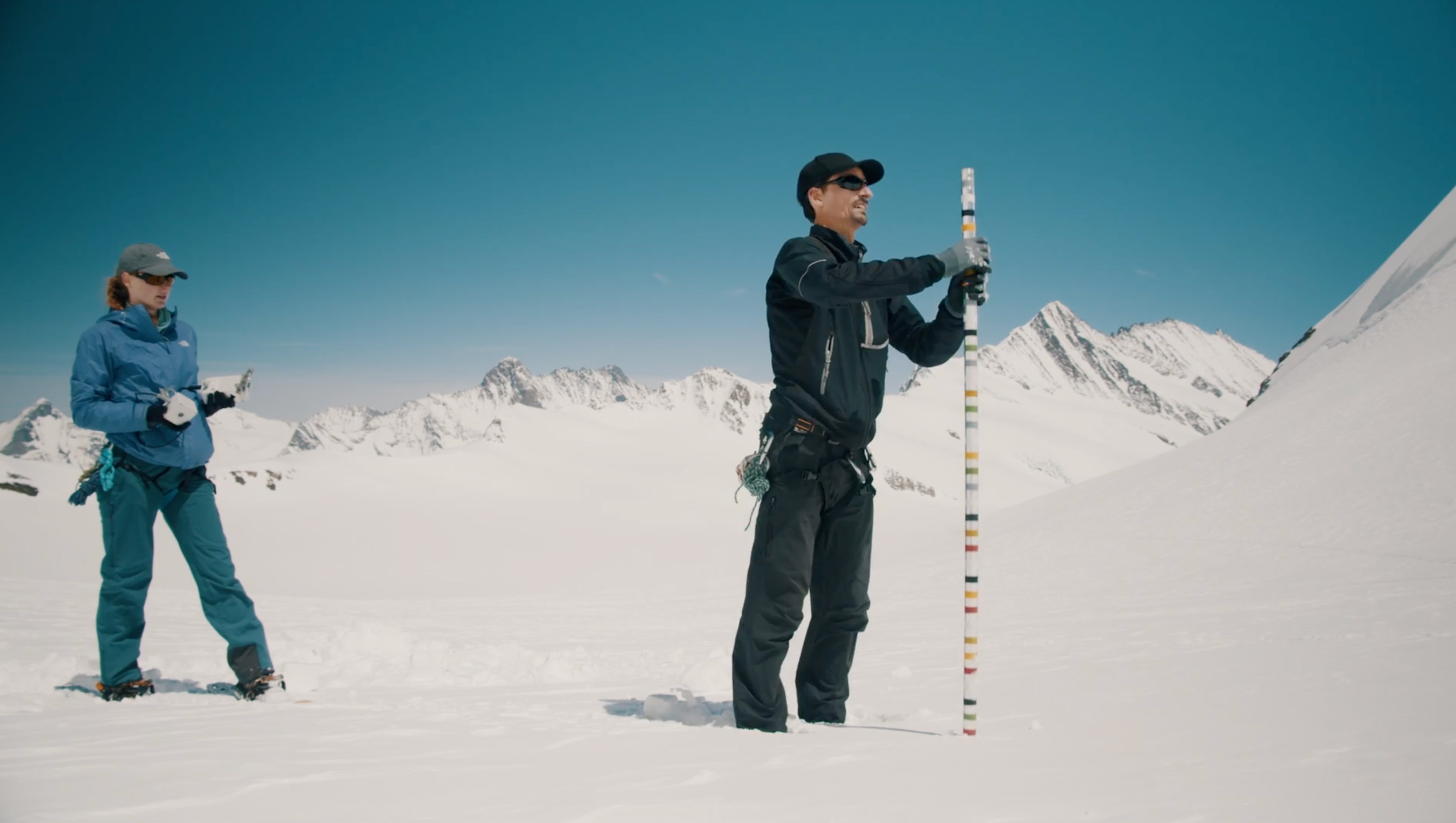Research for our glaciers
Professor Daniel Farinotti investigates the evolution of glaciers and the implications for water resources. On the occasion of his promotion to Associate Professor of Glaciology in the Department of Civil, Environmental and Geomatic Engineering, we asked him what currently drives him in research and teaching.

Professor Farinotti, congratulations on your promotion at ETH Zurich! What are your current research interests?
Thank you! In my research group, we have four main foci. The first is large-scale research into the consequences of glacier changes. For example, we’re investigating what the ongoing glacier retreat means for water resources in various regions of the world. The second focus is fundamental glaciological research. Here, we investigate how water is distributed in and under glaciers, and how this influences glacier dynamics, for example. The third area is glacier monitoring: we manage GLAMOS, the Swiss glacier monitoring network, which we operate together with the Universities of Zurich and Fribourg. The fourth area is contract research, where we make our expertise available to private and public entities.
What impact does your research have on society?
The subject of glacial retreat and its consequences is very topical right now. Especially in Switzerland, where glaciers are part of the landscape and most people have a direct connection to them: many people remember how big a particular glacier was when they first saw it years ago. Glacial retreat has become a symbol of ongoing climate change, and our research is in demand as a result.
Where were you working before you came to ETH Zurich?
That’s a bit of a funny question for me, because it feels like I’ve always been at ETH. I studied here, did my doctorate here and also spent some time here as a postdoc. After that I was at the GFZ German Research Centre for Geosciences in Potsdam, with the British Antarctic Survey in the Antarctic, and at the Swiss Federal Institute for Forest, Snow and Landscape Research (with which the current professorship is shared), but it almost feels I’ve never been away.
Which courses are you teaching at ETH?
As a professorship, we offer: Cryosphere (an introductory lecture at B.Sc. level), Physics of Glaciers (teaching the physical principles of glacier dynamics), Applied Glaciology (an M.Sc. lecture dealing with applied glaciological problems), the Glaciological Seminar (in which selected articles from the glaciological literature are read and discussed), and the Glaciology Field Course (in which small groups of students carry out and interpret their own measurements in the field). For some years now, we’ve also been offering the lecture “Solving Partial Differential Equations with GPUs”, where we teach methods for carrying out simulations on high-performance computers.
“You shouldn’t see studying as an end in itself, but rather as THE opportunity to acquire the skills that will enable you to have a fulfilling job later on.”Daniel Farinotti
What do you do if you have a few minutes to spare?
Go for a bike ride!
Which book, podcast, or film related to your field of research would you recommend to students and colleagues?
Apart from specialist books, I find the books describing the voyages of discovery made by the first polar explorers absolutely fascinating. The story of Ernest Shackleton’s Endurance expedition, for example, is one that everyone should hear about at least once. When it comes to documentaries, I find Between Sky and Ice (original: La glace et le ciel) by Luc Jacquet very exciting. It depicts the history of ice core research. And if you want to see more than ice, then the BBC documentary series Frozen Planet has something for everyone. Some of the images in it are simply incredible!
What advice would you give to students who are just starting out in the engineering sciences?
I know it’s easier said than done, but you should ask yourself what you want to do later on and then take the subjects you need for it. In other words, you shouldn’t see studying as an end in itself, but rather as THE opportunity to acquire the skills that will enable you to have a fulfilling job later on.
Professor Daniel Farinotti (*1982) has been promoted from tenure-track Assistant Professor at ETH Zurich and Group Leader at WSL to Associate Professor of Glaciology in the Department of Civil, Environmental and Geomatic Engineering, effective in July 2023. Daniel Farinotti investigates the evolution of glaciers and the implications for water resources. His most important contributions include developing a method of computing ice thickness distribution in individual glaciers (known as the “Farinotti method” and used by the glaciology community). His research is an ideal match with the Department’s main strategic topics. Furthermore, Farinotti’s expertise and worldwide reputation play a decisive part in ensuring ETH Zurich’s national and international role as a leading institution in the field of glaciology.
